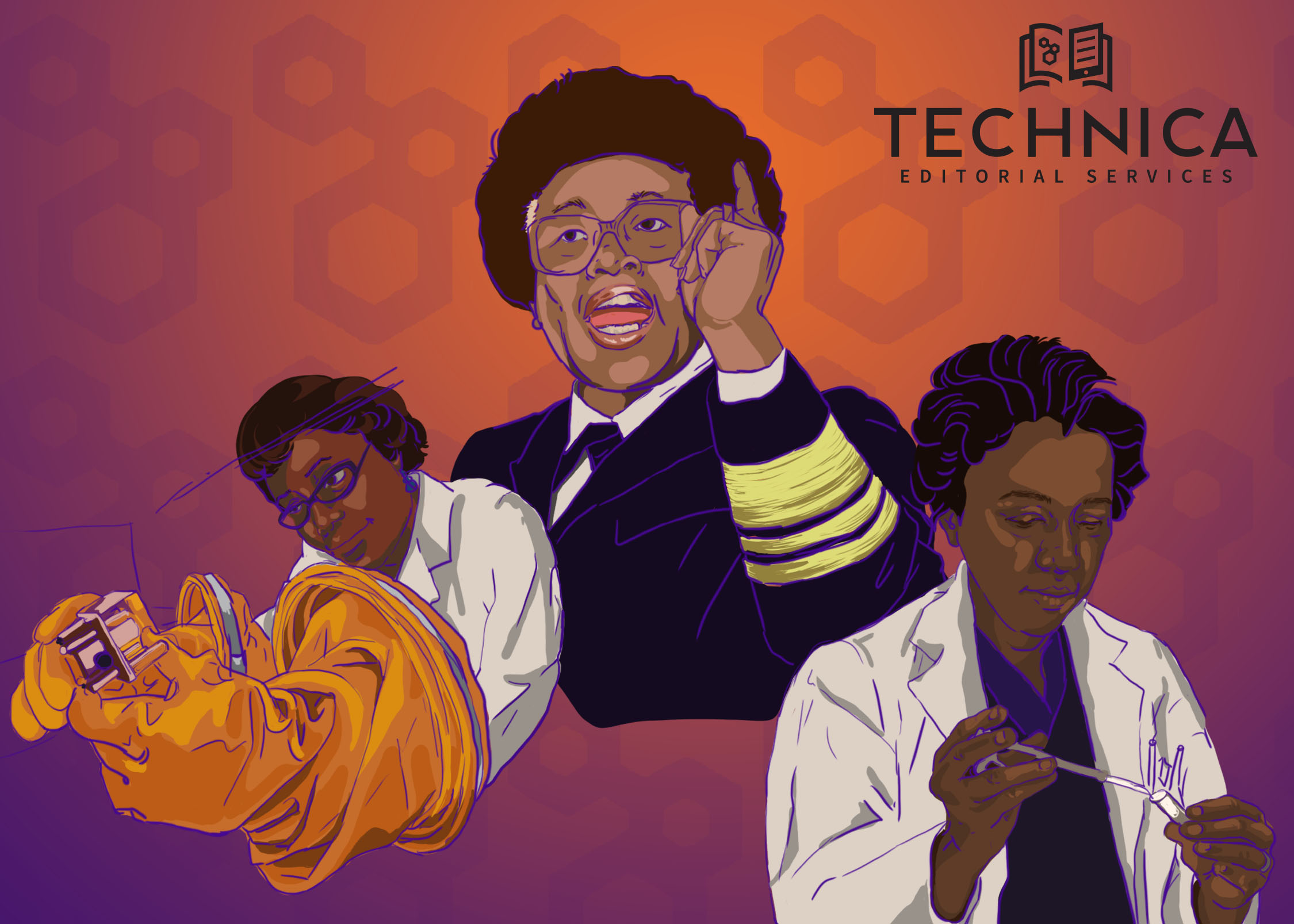[Left to right: Paula Hammond, Joycelyn Elders, Alice Ball; image created by Hayley Nestor]
February 11th marks the fourth International Day of Women and Girls in Science, a day that highlights the gender disparity in scientific fields, encourages women and girls to participate in the sciences, and celebrates women’s existing scientific contributions. Currently, less than 30% of researchers worldwide are women; many top prizes in the sciences are heavily biased toward men; and women in male-dominated scientific fields often face workplace discrimination and professional inequity.
And when it comes to getting published (something the team at Technica Editorial knows a lot about) women are less likely to be the first or last author of research articles (especially in high-impact journals). Moreover, papers featuring women in prominent author positions tend to attract fewer citations than those featuring male authors. So, Technica Editorial has decided to celebrate the day by highlighting some of the top female authors and researchers in scientific publishing from 2018 and early 2019.
- Caroline Buckee is the last author of “Mortality in Puerto Rico after Hurricane Maria,” which details the aftermath of the 2017 hurricane season. Her research uses mathematical models and data science to understand the spread of infectious diseases. Her manuscript on Maria was the public’s most discussed scientific paper of 2018, according to Altmetric’s ranking. You can read it here.
- Donna Strickland, an optical physicist, appeared as the first author on “Compression of Amplified Chirped Optical Pulses.” The paper, which introduces a technique for producing ultra-short, ultra-intense laser pulses, was originally published in 1985, but it took 33 years for Strickland and her research partner to be awarded the 2018 Nobel Prize in Physics for the study’s contributions to science! You can find the paper here.
- Cardiologist Sarah Seidelmann appears as the first author of “Dietary Carbohydrate Intake and Mortality: A Prospective Cohort Study and Meta-Analysis,” a study focused on determining how many carbs humans can healthily consume. The article was Altmetric’s 6th most discussed paper of 2018. Read it here.
- Chemical engineer Frances H. Arnold took home a 2018 Nobel Prize in chemistry for her work on the directed evolution of enzymes. Arnold has been working in this field since the 1990s and has created an enzyme that remains active in denaturing environments. You can read more about Arnold’s work with enzymes here. You can find a list of papers published by Arnold’s research group here.
- Rounding out our list is Heather Grab, a postdoctoral researcher at Cornell who is the first author of “Agriculturally Dominated Landscapes Reduce Bee Phylogenetic Diversity and Pollination Services.” Heather aims to “explore ecologically grounded, sustainable agricultural practices.” Her report appeared in the January 2019 edition of Science. You can read the abstract here.
With that, Technica Editorial wishes you a happy International Day of Women and Girls in Science. Here’s to seeing more female authors, researchers, and Nobel laureates in the coming year.





